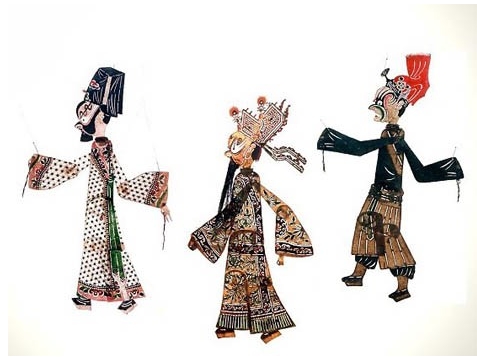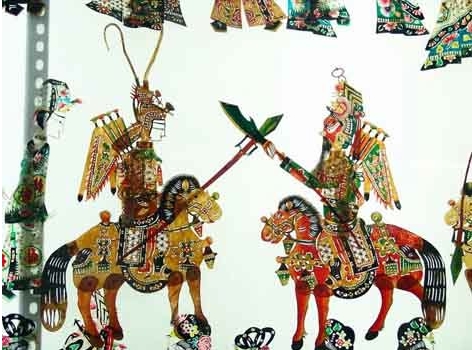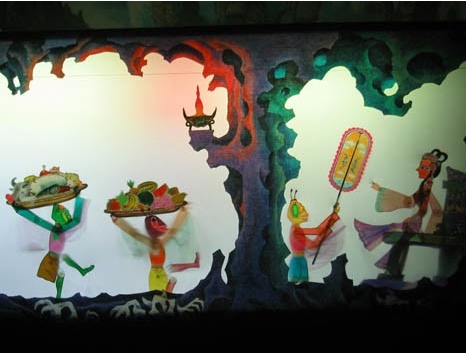
The shadow puppet play, also called "shadow play", is a drama form in which the player holds the human figures that are engraved by the animal hides with colored paintings, and reflected on the curtain through the light, singing and dancing controlled by the player with the silk string, gongs and drums music, playing a series of stories. It is widely spread in most regions in China, except Tibet and Xinjiang, with different styles of shadow puppet play in different places. However, the characters shaping and performance skills are all quite exquisite, with play themes including the Chinese ancient magic, myths, religions, monarchs, legal cases, wars, as well as talented scholars and pretty ladies, the secular life and etc.

The shadow puppet play with written records dated back to the Song Dynasty, and Bianliang, the capital of the Northern Song Dynasty had had the performance of shadow play yet. At that time, the shadow plays were divided into the shadow hand play, the shadow puppet play (including the shadow paper play), and the large shadow play. Many grand occasions of the performances had been recorded by the Song people. While in Yuan Dynasty, owning to the westward conquest by the Mongolia troops, the Chinese shadow plays were introduced into the Middle East, Arab, Turkey, Egypt, and other countries, and later brought to some East European countries. In Ming and Qing Dynasties, the contents and forms of the shadow plays had some new developments, thereby forming the various genres with local colors.

The principle and methods of shadow performance adopted by the shadow puppet played an important leading role in the invention of the modern movie and the development of the movies and cartoons. Nowadays, the Chinese shadow puppet plays have been collected by the museums of many countries in the world; meanwhile they are the best presents sent by the Chinese governmental leaders for their foreign counterparts.





